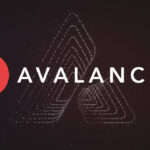Cryptocurrency wallets play a pivotal role in the decentralized finance (DeFi) and Web3 ecosystem, providing users with the means to interact with blockchain technology and ensuring the safekeeping of their digital assets. With a plethora of options available, ranging from web-based solutions to hardware devices, choosing the right wallet is crucial for a seamless and secure crypto experience. In this guide, we’ll explore the top picks for cryptocurrency wallets, offering insights into their features, security measures, and unique characteristics.

1. MetaMask: Your Gateway to Web3

Overview: MetaMask stands as the undisputed leader in the Web3 wallet landscape, boasting approximately 21 million monthly active users. This browser extension facilitates easy interaction with the blockchain, allowing users to manage their digital assets with a user-friendly interface.
Key Features:
- User-friendly interface with a seamless setup process.
- Non-custodial, giving users control over their private keys.
- Open-source and compatible with Ethereum-based tokens.
- Supports trading on custom chains like Binance Smart Chain and layer 2 solutions such as Polygon.
Considerations:
- Online functionality poses a potential security risk compared to cold wallets.
- Limited to Ethereum and ETH-based tokens.
2. Coinbase Wallet: Bridging Mainstream and Crypto
Overview: Backed by the reputable Coinbase exchange, Coinbase Wallet serves as a non-custodial wallet designed for secure asset transfers. While distinct from the Coinbase exchange, it leverages Coinbase’s credibility and user base.
Key Features:
- Non-custodial, allowing users to transfer assets securely.
- Supports a range of digital assets, including Ethereum-based tokens, Bitcoin, and more.
- Integration with ETH Layer-2 solutions like Arbitrum and Binance Smart Chain.
Considerations:
- High compliance features, including Know Your Customer (KYC) rules.
- Vulnerable to online risks associated with hot wallets.
3. Trust Wallet: Embracing Diversity in Assets
Overview: Trust Wallet, a multi-asset mobile wallet, has gained popularity for its support of a wide range of cryptocurrencies and assets. As a non-custodial wallet, it enables users to stake and earn returns on held digital assets.
Key Features:
- Mobile-friendly with support for various cryptocurrencies.
- Blockchain-agnostic, allowing users to engage with multiple chains.
- Enables staking without incurring wallet, swapping, or dApp fees.
Considerations:
- No desktop or web wallet available.
- Considered a “hot wallet,” susceptible to online vulnerabilities.
4. Zerion: Uniting Social and Investing
Overview: Zerion sets itself apart as an intuitive mobile-first web3 social wallet and investing tool. With features for managing DeFi and NFT portfolios, Zerion emphasizes user-friendly experiences and portfolio management.
Key Features:
- Built-in trading and bridging aggregator across major blockchains.
- Social features, allowing users to follow wallets and receive NFT drop notifications.
- Tools like Websocket API and DeFi SDK shared with the developer community.
Considerations:
- Primarily designed for Ethereum-based activities.
- Still evolving with ongoing beta development.
5. ZenGo: The Vanguard of Web3 Security
Overview: ZenGo positions itself as the most secure wallet in Web3, powered by Multiparty Computation (MPC) cryptography. With a focus on safety and recoverability, ZenGo ensures simplicity without compromising security.
Key Features:
- MPC wallet with no private key vulnerability.
- 24/7 in-app support and encrypted biometrics for simple recovery.
- Web3 firewall (ClearSign) for heightened security during transactions.
Considerations:
- Limited multichain support compared to some competitors.
- Relatively newer entrant in the wallet space.
6. Argent: Mobile-First DeFi Experience
Overview: Argent adopts a mobile-first approach, providing a user-friendly experience within the DeFi landscape. Offering layers of security and interest on lent assets, Argent integrates seamlessly with Ethereum and ERC-20 tokens.
Key Features:
- Mobile-focused with a slick UI tailored for Ethereum users.
- Direct integration of dApps and protocols for enhanced functionality.
- Security features include layers of protection for user assets.
Considerations:
- No platform for desktop or computer users.
- Ethereum-based applications and tokens exclusively supported.
7. Rainbow: Slick Ethereum Interface
Overview: Rainbow emerges as a non-custodial wallet catering specifically to Ethereum users. With a sleek user interface, Rainbow supports Ethereum dApps and allows users to display their NFTs directly within the application.
Key Features:
- Non-custodial with user control over assets.
- User-friendly interface tailored for Ethereum users.
- Supports in-app execution of swaps and interaction with Ethereum-based applications.
Considerations:
- Vulnerable as a hot wallet; regular backup of data and seed phrases is crucial.
- Limited to the Ethereum ecosystem.
8. Trezor Model T: Pioneer in Hardware Wallets
Overview: Renowned for developing the first hardware wallet, Trezor Model T continues to be a stalwart in the world of hardware wallets. Its LED display and PIN provide secure access, with added 2-factor authentication for enhanced security.
Key Features:
- Hardware wallet ensuring offline storage of private keys.
- Supports over 1,600 cryptocurrencies with a focus on security.
- User-friendly interface with an easy setup process.
Considerations:
- Relatively higher cost compared to some competitors.
- Interface may not be as beginner-friendly as other hardware wallets.
9. Ledger Nano S: Affordable Cold Wallet
Overview: The Ledger Nano S offers an affordable entry into the realm of cold wallets, providing users with offline storage and secure management of private keys. Supporting over 1,100 tokens, it emphasizes ease of use and quick setup.
Key Features:
- Cold wallet for secure offline storage.
- Easy setup process and support for a wide variety of tokens.
- Affordable option for those seeking hardware wallet security.
Considerations:
- Limited storage space for crypto apps.
- Small non-touchscreen display with manual button control.
10. Ledger Nano X: Bluetooth-Enabled Security
Overview: The Ledger Nano X stands as one of the most popular hardware wallets, featuring Bluetooth connectivity and compatibility with the Ledger Live smartphone app. With support for over 1,800 tokens, it combines security with user convenience.
Key Features:
- Bluetooth-enabled for wireless transactions.
- Ledger Live app for convenient balance checking.
- Sleek design and compatibility with a wide range of tokens.
Considerations:
- Relatively higher cost compared to some alternatives.
- Competition may offer additional features.
11. Exodus: Desktop Wallet with Exchange Integration
Overview: Exodus excels as a desktop wallet with distinctive features, including a built-in exchange for seamless asset trading. While providing a variety of cryptocurrencies, it focuses on a quick transaction process.
Key Features:
- Desktop wallet with an integrated exchange.
- User-friendly interface and quick transaction processing.
- Supports a wide variety of cryptocurrencies, including niche tokens.
Considerations:
- Lack of two-factor authentication.
- Higher transaction fees for expedited processing.
12. Phantom: Navigating the Solana Ecosystem
Overview: Phantom stands out as the premier Solana wallet, offering a lightweight and non-custodial solution for managing crypto and NFTs. With a beginner-friendly interface, it emphasizes simplicity and security.
Key Features:
- Lightweight and non-custodial, ensuring security.
- Browser compatibility and connection to hardware wallets.
- Exclusive focus on the Solana blockchain.
Considerations:
- Transaction costs paid in SOL within the Solana ecosystem.
- Limited to the Solana blockchain.
13. Frame: Ethereum Optimization for Desktops
Overview: Frame positions itself as an Ethereum wallet optimized for macOS, Windows, and Linux. With a focus on desktop and web accessibility, Frame offers a hot wallet experience with unique features.
Key Features:
- Desktop and web wallet optimized for Ethereum.
- In-app features like Twitter verification and gas display.
- Simplified user experience for asset transfers.
Considerations:
- Currently in beta, potential for bugs.
- No mobile wallet support as of now.
14. Glow: Simplifying Solana Transactions
Overview: Glow Wallet emerges as a simple yet effective mobile wallet for Solana transactions. Enabling users to send, receive, and swap on the Solana blockchain, it prioritizes clarity and security.
Key Features:
- Mobile-focused with a user-friendly interface.
- In-app exploration of NFTs and digital assets.
- Unique feature: Solana pay for in-person retailer transactions.
Considerations:
- Limited to mobile usage; no web or desktop version.
- Relatively new in the market; ongoing innovations expected.
15. Apex: Messaging in the Wallet
Overview: Apex introduces an Ethereum wallet with a distinctive feature – in-app, wallet-to-wallet messaging. This innovative approach opens up possibilities for secure communication within the wallet.
Key Features:
- In-app messaging for secure communication.
- Simple user interface with sections for viewing NFTs.
- Security features include blurred wallet contents.
Considerations:
- Limited use cases for in-wallet messaging.
- Relatively new; evolving features expected.
16. OKX Wallet: Empowering Self-Custody
Overview: OKX Wallet stands as a leading self-custody wallet, providing users with control over their crypto, NFTs, and digital assets. Offering a user-friendly interface, it supports multiple languages and numerous blockchains.
Key Features:
- Self-custody wallet for secure management.
- Multilingual support and compatibility with various blockchains.
- Buy, trade, earn, and manage digital assets seamlessly.
Considerations:
- High number of installs and downloads; potential for ongoing enhancements.
- KYC rules may apply, aligning with the company’s policies.
Final Thoughts: Navigating the Crypto Wallet Landscape
Choosing the right cryptocurrency wallet is a crucial step in ensuring the security and accessibility of your digital assets. Whether you opt for the user-friendly interfaces of software wallets or prioritize the enhanced security of hardware wallets, regular backups of data files and seed phrases are imperative. The dynamic nature of the crypto landscape promises ongoing innovations, and as the industry evolves, so too will the features and capabilities of these wallets. Stay informed, stay secure, and embark on your crypto journey with the confidence that your chosen wallet aligns with your preferences and priorities.




